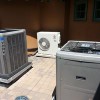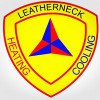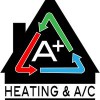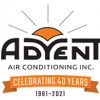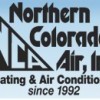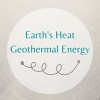
While air temperatures may vary wildly above the ground based on seasons, weather, and the time of day, the temperatures 10 feet below ground are consistently between 50°F and 60°F. A geothermal system leverages these constant temperatures to warm your environment, transferring heat from the ground (or in some cases a body of water) into homes and buildings during cold weather. There are several types of geothermal heat pumps, but here in Colorado we rely primarily on ground source heat pumps which are connected to a series of pipes buried either horizontally or vertically beneath the ground.
If your home was built more than 20 years ago, your original heating and cooling systems are inefficient and costly compared to today's modern, high-efficiency solutions. That means you are not only paying for more energy, you're missing out on the full benefit of that purchase. Upgrading to a high-efficiency geothermal system, heat pump, or conventional high-efficiency furnace or air conditioner is a smart investment that can save you thousands of dollars over the lifetime of your home.
Sure, older buildings have certain charms to them. Keeping people comfortable and saving money on energy aren't typically among them. High-efficiency heating and cooling solutions not only lower your monthly energy costs, they can actually boost productivity by ensuring your employees are comfortable and focused. We've all seen people running space heaters in the summer and opening windows in the winter trying to adjust for comfort. Not only is this a major distraction, it affects your people's sense of wellbeing and increases your energy consumption-all factors that can impact profitability.
You and your wallet can breathe a little easier with a geothermal cooling system from Perfect Temp. A geothermal system cools your home by extracting heat from the air and either moving it back into the earth loop or using it to preheat your hot water heater. With heat removed, the remaining cool air is circulated throughout your home or business via existing air ducts. We give you free, honest advice on the benefits of geothermal vs. conventional high-efficiency solutions so you can understand your options and make the decision that's best for you.
Heat pumps are great for states like Colorado with more moderate weather and less extreme heating and cooling requirements. In the summer, heat pumps extract heat from your home and move it outside, leaving cool air behind. In winter, they extract heat from outside and circulate it inside your home or office. Because heat energy is being moved vs. generated, heat pumps are significantly more cost-efficient and use considerably less energy to keep your indoor environment comfortable. There are several types of heat pumps, including air-source, water-source, and geothermal systems.
Perfect Temp offers custom duct work and consulting services to help improve both the performance and the look of your ventilation system. Small Duct High Velocity (SDHV) systems are quiet, efficient, and they fit into virtually any space. We proudly sell Unico high-velocity duct solutions that are less intrusive and can be routed through existing walls with little to no remodeling, eliminating the need for bulky and unsightly soffits. Additionally, ductless mini split heat pumps can be a good option for retrofits on houses with baseboard, radiant, hot water, or space heating (such as wood or propane)-especially for homes or rooms/additions where adding ductwork is not feasible.
There are two types of heat pumps-geothermal and air source. Both systems operate similarly, they just derive their thermal energy from different places. In cold weather, Geothermal heat pumps gather heat from beneath the ground and transfer it throughout your home or business. In warm weather, the process is reversed and heat from buildings is extracted and transferred into the ground where it is cooled and returned at a more comfortable temperature. Air source heat pumps function the same way except they collect and transfer heat to and from your home or office from the outside air vs. the ground.
Today's modern air conditioners are significantly more efficient than models from even 10-15 years ago. It's not uncommon for older units to have a SEER ratio (the ratio of the cooling output of an air conditioner over a typical cooling season, divided by the energy it consumed in watt-hours) below 10. These days, the minimum rating to qualify for federal tax credits is 16, and some systems can range as high as 21 or more. That means upgrading to a high-efficiency air conditioner can drastically lower your energy consumption and, of course, your monthly cooling bills.
Similar Businesses
